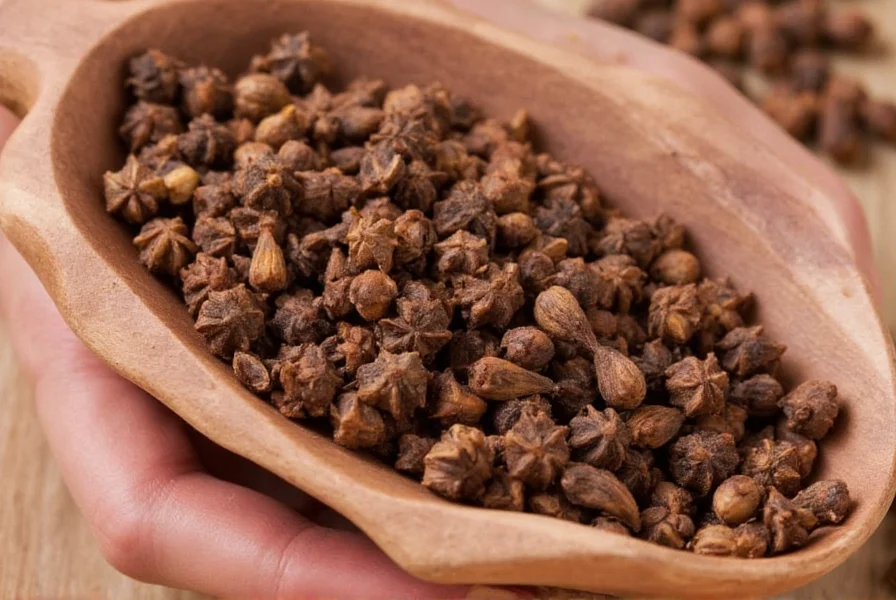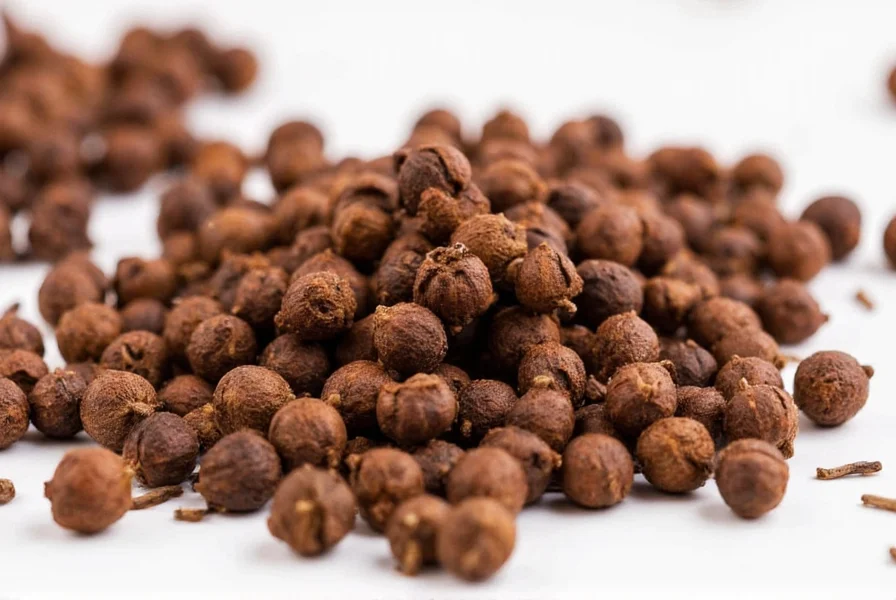For centuries, cloves have been valued not just as a culinary spice but as a medicinal plant across traditional healing systems. Modern research continues to validate many of these historical uses while revealing new potential applications. This comprehensive guide examines the science behind clove's health properties, separating evidence-based benefits from anecdotal claims.
The Science Behind Clove's Medicinal Properties
Cloves (Syzygium aromaticum) contain over 100 bioactive compounds, with eugenol being the most significant therapeutic component. This phenolic compound constitutes 70-90% of clove essential oil and demonstrates remarkable biological activity. Scientific studies published in the Journal of Agricultural and Food Chemistry confirm cloves rank among the most potent antioxidant spices, with an ORAC value (Oxygen Radical Absorbance Capacity) exceeding 1 million μmol TE/100g—significantly higher than many fruits and vegetables.

Evidence-Based Health Benefits of Clove
Dental Health and Pain Relief
One of the most well-documented clove health benefits involves oral care. Multiple clinical trials demonstrate clove oil's effectiveness as a temporary remedy for toothaches. A 2016 study in Anesthesia & Pain Medicine found clove gel provided comparable pain relief to benzocaine for dental procedures. The mechanism involves eugenol's dual action as both an analgesic and antimicrobial agent, inhibiting bacteria like Streptococcus mutans that cause cavities.
Anti-Inflammatory Effects
Research published in Phytomedicine shows clove extract significantly reduces inflammatory markers including TNF-α and IL-6. These effects make cloves potentially valuable for managing chronic inflammatory conditions. The anti-inflammatory properties of clove oil benefits extend to topical applications for arthritis and muscle pain relief, with studies showing reduced swelling in animal models.
Antioxidant Protection
Cloves contain exceptionally high levels of antioxidants that combat oxidative stress. A comparative analysis in the Journal of Medicinal Food ranked cloves third among 26 spices for total polyphenol content. These compounds help protect cells from damage that contributes to aging and chronic diseases. Understanding clove tea health effects reveals its potential to boost the body's natural antioxidant defenses when consumed in moderation.
| Health Benefit | Scientific Evidence Level | Recommended Application |
|---|---|---|
| Dental pain relief | Strong clinical evidence | 1-2 drops diluted clove oil on cotton ball |
| Antioxidant protection | Strong laboratory evidence | 1-2 whole cloves daily in cooking |
| Blood sugar management | Promising animal studies | Consult professional before therapeutic use |
| Digestive support | Moderate traditional and preliminary research | Clove tea after meals |
Digestive Health Support
Traditional medicine systems have long used cloves to address digestive issues. Modern research supports these uses, with studies showing clove extract stimulates digestive enzyme production and reduces gastric irritation. The carminative properties of cloves help alleviate bloating and gas. For those exploring natural remedies with cloves, a simple clove tea preparation can provide gentle digestive support after meals.
Blood Sugar Management
Emerging research suggests cloves may help regulate blood glucose levels. A 2020 study in Nutrients found clove extract improved insulin sensitivity in animal models. While promising, more human clinical trials are needed before recommending cloves as a primary treatment for diabetes. Individuals with blood sugar concerns should consult healthcare providers before using cloves therapeutically.
Safety Considerations and Potential Side Effects
Despite their benefits, cloves require careful usage. Excessive consumption can lead to:
- Liver toxicity from high eugenol concentrations
- Bleeding complications due to anticoagulant effects
- Oral tissue damage from undiluted essential oil
- Allergic reactions in sensitive individuals
The European Medicines Agency recommends limiting clove oil to no more than 2.5 mg eugenol per kilogram of body weight daily. Children, pregnant women, and individuals with bleeding disorders should avoid therapeutic doses without medical supervision. Understanding clove side effects and safety is crucial for responsible usage.
Practical Ways to Use Cloves for Health Benefits
For those interested in incorporating cloves into their wellness routine, consider these evidence-based approaches:
Clove Tea Preparation
Steep 1-2 whole cloves in hot water for 5-10 minutes. This gentle preparation preserves beneficial compounds while minimizing potential irritation. Clove tea health effects include mild antimicrobial action and digestive support without the risks associated with concentrated oils.
Topical Applications
For dental pain or muscle aches, dilute clove oil in a carrier oil (1 part clove oil to 5 parts coconut or olive oil). Never apply undiluted essential oil directly to skin or gums. The proper dilution for clove oil benefits ensures therapeutic effects without tissue damage.
Culinary Incorporation
Add whole or ground cloves to cooking for subtle flavor and health benefits. The cooking process with cloves enhances dishes while providing antioxidant compounds. Limit to 1-2 whole cloves per serving to stay within safe consumption levels.
Conclusion: Balancing Tradition and Science
Cloves represent a remarkable intersection of traditional wisdom and modern scientific validation. While not a cure-all, their evidence-based health benefits make them a valuable addition to a holistic wellness approach. The key to maximizing clove health benefits lies in understanding appropriate usage, respecting dosage limitations, and recognizing when professional medical care is necessary. As research continues to explore the full potential of this ancient spice, current evidence supports its role as a complementary health tool when used responsibly.











 浙公网安备
33010002000092号
浙公网安备
33010002000092号 浙B2-20120091-4
浙B2-20120091-4